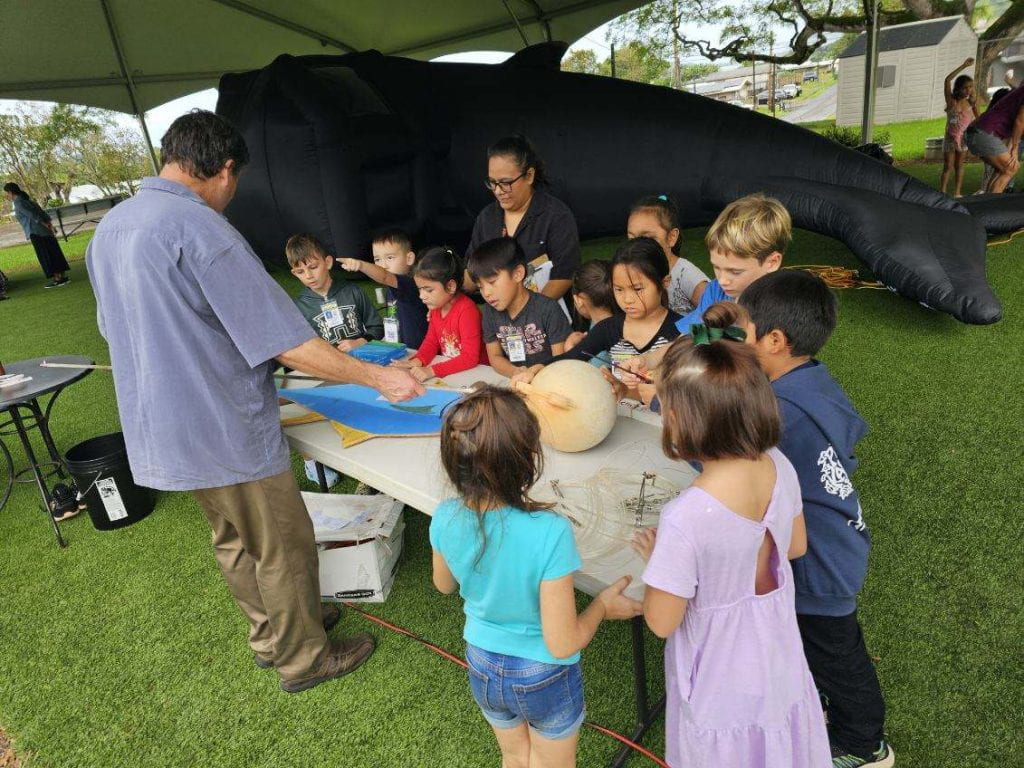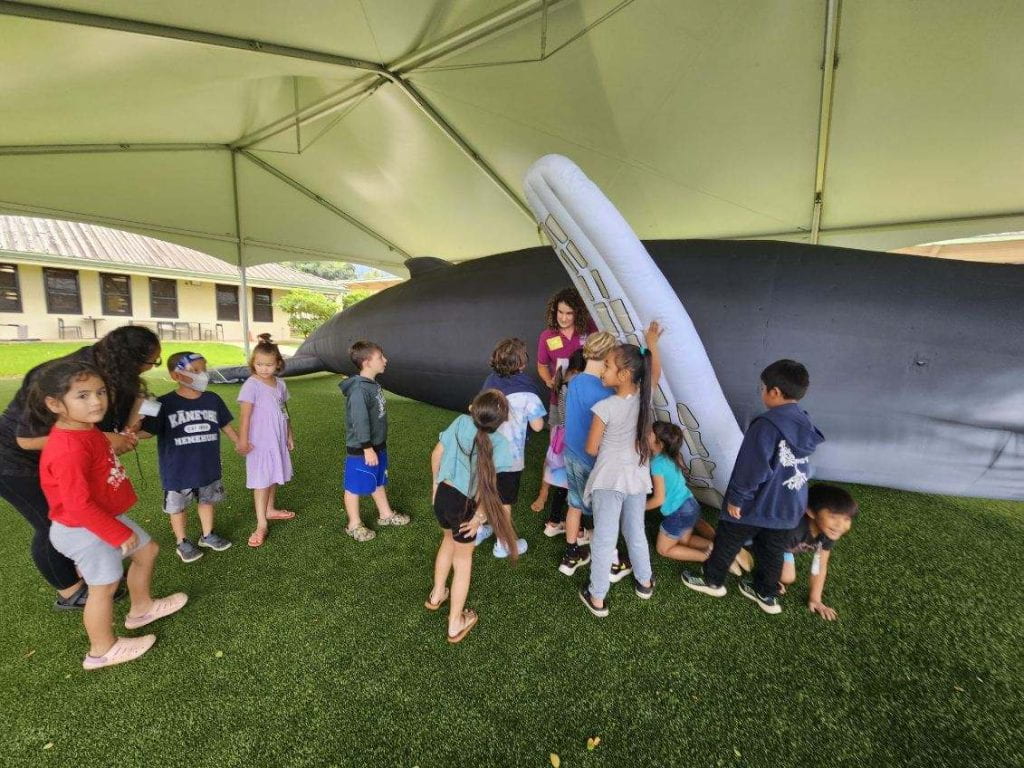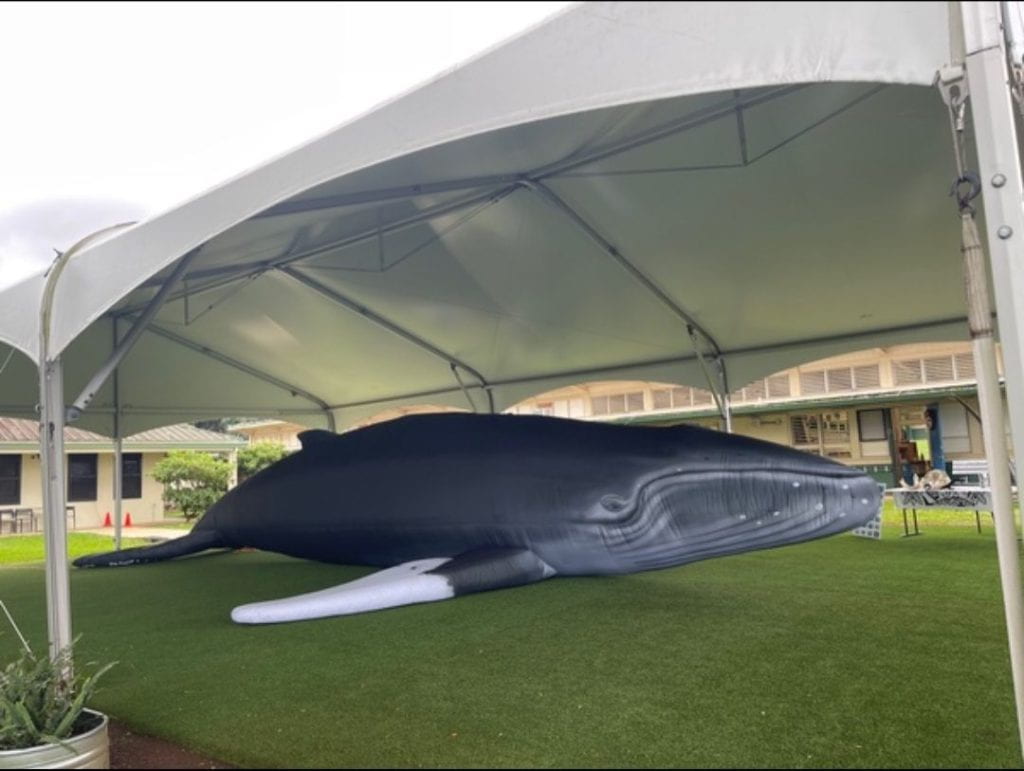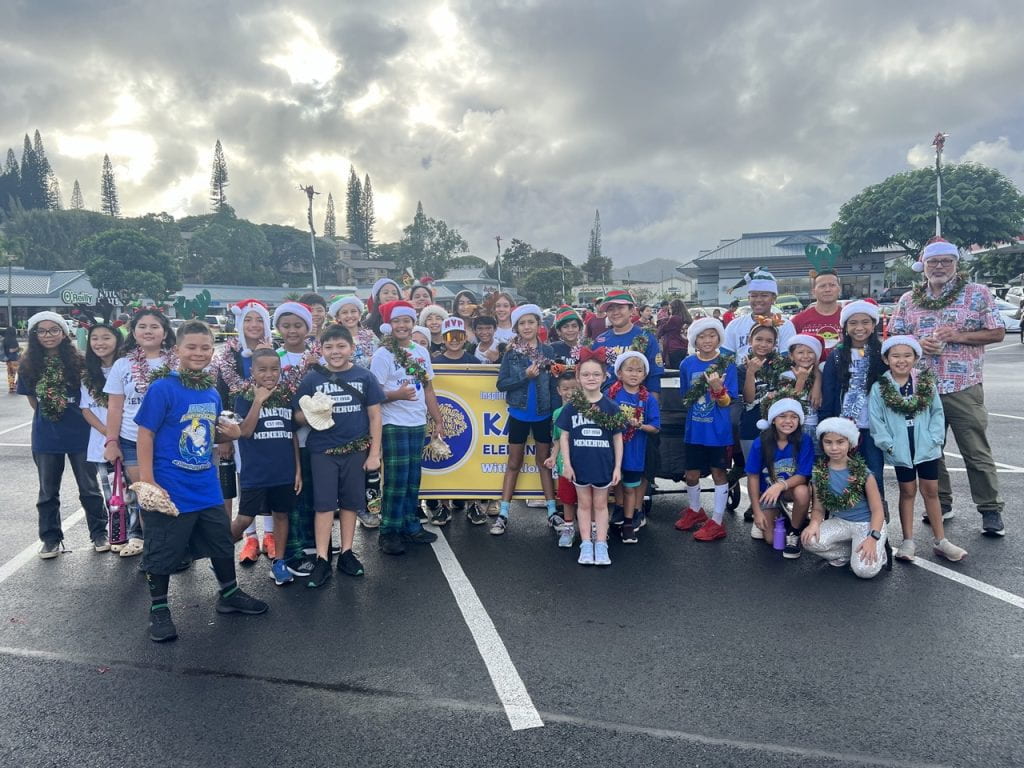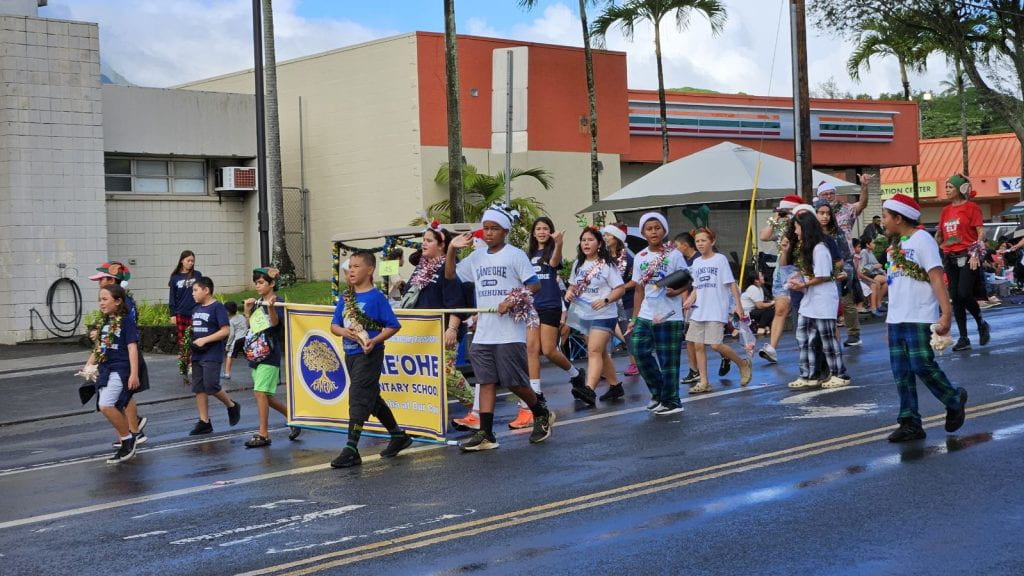ow, lowly, minimum, humble, degraded, meek, unpretentious, modest, unassuming, unobtrusive; lowness, humility.
Pukui, Mary Kawena, Hawaiian dictionary
ALOHA FOCUS FOR THE WEEK: HAʻAHAʻA
It may seem counterintuitive, but sometimes, as an educator, the hardest thing to do is listen and learn. I am often in teaching mode, with lessons and stories at the ready. Confused about something? Got a question or a problem to solve? I am here to help. However, not every question can or should be immediately responded to with an answer and nor should a solution be doled out for every problem.
For example, when a student is referred to the office for doing harm to a classmate, in the past I would’ve made assumptions about what happened and how to treat the situation. Often, I’d project my own childhood experiences onto this student. I’d assume they’d acted thoughtlessly and a punitive consequence would serve as a lasting deterrent. However, I was not someone who was frequently referred to office and I possessed enough self-control that I could keep myself from acting out thoughtlessly…at least in school. I remained focused throughout the school day and rarely disrupted class. I responded well to reward systems, collecting bookmarks and stickers for sitting still, answering questions and memorizing facts. In the past 11 years, my assumptions worked for a few kids. One or two referrals to the office was all it took. For many other kids, suspensions, detentions, and lectures barely seemed to sink in.
It took some time and training before it sunk in: that every kid is different and none are the same as me. Some kids come to school not knowing where they’ll be sleeping that evening. Others are estranged from their parents and have little contact with them. Still others have anxieties lingering from the pandemic that launch them into a constant fight or flight mentality. These student do not respond as I would to any of the punishments I might issue. In fact, for some, being suspended may reward their behavior because it temporarily removes them from whatever is stressing them out in school.
I learned that if I truly want to teach students how to be successful and thrive in the world long-term, then I need to take a different approach and that approach starts with listening to them. I first need to be haʻahaʻa, empty myself of any preconceptions and judgements. This allows me to authentically be there for the student and listen to what they are struggling with that prompted the harmful behavior. Once I understand, only then can I design lessons tailored to the situation and help the student learn how to avoid the behavior in the future as well as make things right in the present.
Starting with listening that’s filled with empathy, does not mean students have no consequences. Instead, empathy allows for designing consequences that are long lasting. These consequences help the students realize how they are causing harm to themselves and others. They are meant to make restitution so that all who have been harmed feel restored. And they teach students strategies to mitigate harming others in the future. Depending on the situation, it may require the student receive counseling and for us to work with the families on a continuous basis. Often, this requires long term work with the student to break bad habits and successfully employ new skills.
Similar to teaching reading or math, some students require different instructional approaches and strategies to address unique challenges. And like teaching those subjects, we reach greater, lasting success when we first listen to the student with haʻahaʻa and then ascertain which approach and strategy to use.
5 PURSUITS of LŌKAHI
Inspired by Gholdy Muhammad
Please watch this: The Legend of the Beaver’s Tail written by Stephanie Shaw and illustrated by Gijsbert van Frankenhuyzen. Then with you child, answer the following:
- IDENTITY: This book is based on sacred stories passed down by the Ojibwe people in Canada meant to teach the values of their culture. Talk with your kupuna about stories that your ancestors passed down to share the values of your culture.
- SKILLS: The author uses the word “legend” in the title of this book. What genre of literature would legend fall into? BONUS: Hear more traditional telling of the story by Anishinaabemowin educator Barbara Nolan in Ojibway, with English subtitles
- INTELLECT: Research beavers and how they contribute to a balanced ecosystem.
- CRITICALITY: Some humans consider beavers a nuisance when their property is affected by flooding or gnawing of trees. Given the beaver’s positive contributions to the environment, how might humans live in harmony with beavers?
- JOY: Build a beaver dam.
HOʻOMAIKAʻI ʻANA
Please join us in congratulating Lauren Collier, one of our special education teachers, and Melissa Lee, our preschool teacher, who both achieved National Board Certification. To attain this, Ms. Collier and Ms. Lee underwent a rigorous process of examining their teaching acumen that typically involves over a hundred hours of work beyond the school day. This is a prestigious distinction of which only 6% of teachers in Hawaiʻi hold, including those that teach in private schools.
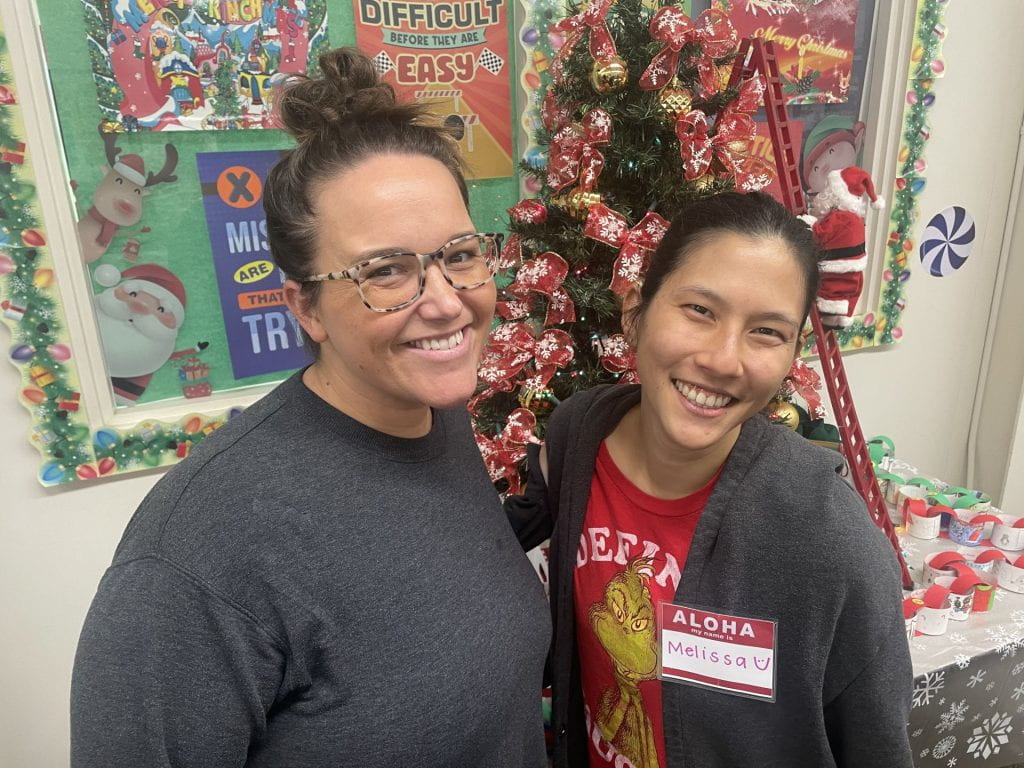
MOKULELE REMINDERS
For those that drop-off and pick-up students on Mokulele, please remember to show aloha to our neighbors. Please do not park in the middle of the road as this creates a major safety hazard for both children entering/exiting your car as well as those traveling on Mokulele. Further, the roads across and mauka of our school are privately owned by the residents of Parkway. They asked me to relay this plea not to park, stop or use their roads as turn-arounds. Please show aloha and mahalo for your kokua.
CONTINUED PRACTICES:
NOʻAHUNA OF ALOHA
See Uncle Pono Shim explain the Noʻahuna, the esoteric meaning, of Aloha as taught to him by Aunty Pilahi, the Keeper of Secrets.
WEAR PINK FOR MAUI WEDNESDAYS
Join us in letting “that light, that divine inspiration that Aunty Pilahi Paki says is given to you at your very beginning, come through and let your ALOHA join with the ALOHA of the collective to bring about healing.”
DAILY VIRTUAL PIKO
At the Daily Piko, we share thoughts on the Aloha value for the week which helps us become centered and ready to learn. We begin at 8 AM everyday except Wednesdays.
UPCOMING EVENTS
| Mon, Dec 18, 2023, 5 PM | School Community Council Meeting Join by Zoom |
| Wed, Dec 20, 2023 | Winter Classroom Paina end school at 2:05 PM (switch with 12/21) |
| Thur, Dec 21, 2023 | 8:30 – 9:15 AM Winter Songfest 1st Show (for those with an eldest student is in grades K, 1st, 2nd, and 3rd) 9:30 – 10:15 am Winter Songfest 2nd show: (for those with an eldest student is in grades 4th, 5th, and 6th) end school at 1:15 PM (switch with 12/20) End of Quarter 2 |
| Dec 22, 2023 – Jan 5, 2024 | Winter Break Intersession – no school |
| Mon, Jan 8, 2024 | Waiver Day #3 – No Students |
